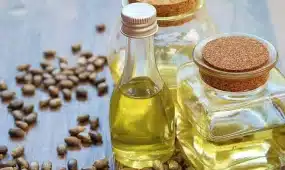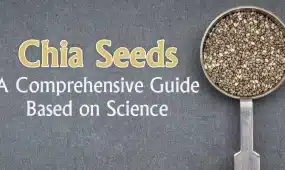Your immune system is what maintains your health.
As Mahatma Gandhi said, “It is health that is real wealth and not pieces of gold and silver.”
Your health is one of your most precious possessions. As many have experienced, without your health, life is put on hold or stopped completely.
We can often take our health for granted until we find ourselves or our loved ones in less than perfect health. But being grateful for the health you do have is the first step to improving your health.
This article discusses what your immune system is, and how you can support a strong immune system through nutrition and supplementation.
What is your Immune System Made Up Of?
The human body’s immune system is made up of:
- white blood cells
- antibodies
- the complement system
- the lymphatic system
- bone marrow
White blood cells are a type of blood cell that are needed to fight off infections and diseases. They are also a marker often used to identify if infection or disease is present through a blood test.[1]
Antibodies are proteins designed to attack viruses and bacteria (referred to as antigens). Each antibody has a specific antigen it attacks.[2]
This is how immunizations work: we are exposed to an antigen that forces our bodies to make the relevant antibody needed to attack the antigen. Then, our bodies are prepared with the necessary antibody if we do come in contact with the intended virus.
The complement system is made up of proteins that activate inflammation when a threat is posed. As the name implies, these proteins ‘complement’ the actions of our antibodies which are attacking antigens.[3]
The lymphatic system transports white blood cells throughout the body. The lymphatic system includes lymphatic vessels, lymph nodes, the spleen, the thymus, tonsils, and adenoids. When we experience swelling, this is because our lymph nodes are producing more white blood cells to fight off some kind of invader.[4]
Bone marrow is the tissue inside our bones where blood cells are produced. This includes white blood cells (to fight infection), red blood cells (to transport oxygen), and platelets (to support blood clotting).[5]
What is a Strong Immune System?
As you may notice, the immune system is more complex than we are often led to believe. Unfortunately, we don’t know a whole lot about how lifestyle factors affect immunity.
Likewise, we don’t have extensive research conducted in humans regarding how our diets affect immunity, yet. The research that does exist has been mostly conducted using animal models and cell lines.
Vitamins and Minerals that Support Immunity
From these preliminary studies, we know that particular vitamin and mineral deficiencies have been linked to decreased immunity.
- Zinc
Zinc deficiencies may play a role in the development of diseases, particularly those linked to inflammation. These include cardiovascular disease, type 2 diabetes, and cancer.
One study found that when there is a lack of zinc in an environment, immune cells don’t respond as well as they normally would. Supplementation of zinc has also been shown to help treat a common cold.[6] [7]
- Vitamin C
When we aren’t consuming adequate vitamin C, we are more likely to develop immune conditions and infections, like pneumonia. A historical example of widespread vitamin C deficiency is scurvy. Studies have shown that when we supplement with vitamin C, we may be able to prevent and treat respiratory conditions.[8]
- Vitamin E
Research shows that supplementation of vitamin E may stimulate the immune response to pathogens. However, other studies indicate no response or even less immunity. These varied results may be dependent on the dose of vitamin E, as well as the age of the individual, among other factors.[9]
The Best Foods for Your Immune System
Most of us have three or more chances a day to nourish and support our immune system; breakfast, lunch, and dinner.
The best way to support your immune system through your diet is by consuming lots of colorful fruits, vegetables, and herbs. These are packed with antioxidants that protect our bodies from free radicals. Free radicals have the ability to cause damage and harm to our cells. As a result, they may be partially responsible for many diseases and conditions that are rampant worldwide today, like type 2 diabetes, atherosclerosis (also known as heart disease), and cancers.[10]
A diet rich in fruits, vegetables, legumes, nuts, seeds, and whole grains can provide the important antioxidants needed for a strong immune system.
Asides from the three previously mentioned vitamins and minerals (zinc, vitamin C, and vitamin E), your immune system also needs vitamin A, vitamin B6, iron, selenium, beta-carotene, and magnesium.
To obtain such a variety of vitamins and minerals, you can ensure your diet is rich in the following foods:
- Garlic
- Onion
- Ginger
- Citrus Fruits
- Berries
- Almonds
- Leafy Greens
- Broccoli
- Beans
- Nuts and Seeds
- Brown Rice
- Sweet Potatoes
- Whole Grains
While obtaining plenty of these immune-boosting foods is great, they won’t be very effective if you are also consuming foods that compromise your immune system.
Various foods will increase inflammation. An increase in inflammation is the opposite effect we would like food to have, especially if your intention is to increase your health and wellbeing.
The Worst Foods for Your Immune System
Here are some foods to avoid in excess if you want a strong immune system:
- Sugary sweets like baked goods, candy, etc.
- Alcoholic beverages
- Refined carbohydrates
- Processed and packaged foods
- Refined oils
- Red meat
- Dairy
- Caffeine
Immune Boosting Supplement – Additions to a Healthy Diet
In some instances, a supplement, especially one of the best immune booster supplements, can add extra protection. Perhaps if you are under high stress which depletes your bodies’ resiliency, or if you have a vitamin or mineral deficiency, supplementation may come in handy here.
It is worth noting that supplements do not replace an abundant plant-based, whole foods diet. They are merely an additive or, as the name implies, a supplement.
-
Green Tea
Green tea is extremely high in antioxidants, polyphenols, catechins and theanine.
A key polyphenol in green tea is epigallocatechin-3-gallate (EGCG). This compound is anti-inflammatory and has an anti-cancer effect. Studies show it enhances the immune response.[11]
Green tea’s immune-boosting properties were tested in a randomized controlled trial including 200 healthcare workers which took place in Japan. This study showed that those that were given green tea catechins and theanine supplements, over a 5 month period, were less likely to contract the common cold than the placebo group (no supplementation).[12]
Ointments containing green tea catechins may also be effective to be used as an at-home treatment for genital warts caused by the human papillomavirus, a very common sexually transmitted disease.[13]
-
Beta-Glucans
Beta-glucans are polysaccharides (sugar chains) that activate an immune response. They’ve been shown to lower LDL cholesterol, improve gut health,reduce number of respiratory tract conditions and severity, decrease wound healing time, and may lower inflammation.[14] [15] [16] [17]
-
Graviola Leaves
Some research supports the use of this traditional therapy, known as Graviola leaves, for boosting immunity.[18]
Some of its potential therapeutic uses include preventing further infection after surgery, and certain cancers. There have yet to be any studies on Graviola conducted in humans, however. There is also some risk reported that Graviola may cause nerve damage related to the development of Parkinson’s disease.
- Medicinal Mushrooms
Mushroom extracts are popular for managing many health conditions, and for good reason. Medicinal mushrooms are extensively researched and there are several to choose from depending on your intention.[19]
For example, reishi mushrooms are known for their potential to fight cancer by stimulating natural killer cells. They may also help stimulate white blood cells to reduce inflammation.[20]
Maitake mushrooms also have the potential to fight cancer cells. They are anti-inflammatory and may decrease blood sugar levels, as well.[21]
Shiitake mushrooms have the potential to be anti-bacterial, anti-viral, improve gut immunity and decrease inflammation.
This yellow spice is one of the most extensively researched spices in the world. It is best known for its anti-inflammatory, antioxidant properties. It may help increase white blood cell counts, as well.[22]
Important to Remember
Before supplementing with any vitamin, mineral, or herb, it is important to discuss the supplement with your healthcare provider.
Each person’s body is unique, including how you may or may not respond to supplements.
Conclusion
A mostly plant-based diet high in fruits, vegetables, nuts, legumes, and whole grains is an excellent start to boosting immunity.
If you are deficient in a particular vitamin or mineral, look into supplementation.
A common mistake many people make is waiting until feeling sick before thinking about boosting their immunity. However, prevention plays a large role in staying healthy.
If you consume foods that boost your immunity all-year-round, you will likely have an easier time maintaining your health when cold and flu season rolls around.
22 SOURCES
Health Insiders relies on peer-reviewed studies, academic research institutions, and medical associations. We avoid using tertiary references. You can learn more about how we ensure our content is accurate and current by reading our editorial policy.
[1] white blood cell https://www.cancer.gov/publications/dictionaries/cancer-terms/def/white-blood-cell
[2] Mandal, Ananya. 2019. What is an Antibody?. News-Medical, viewed 01 December 2021, https://www.news-medical.net/health/What-is-an-Antibody.aspx complement
[3] Janeway CA Jr, Travers P, Walport M, et al. Immunobiology: The Immune System in Health and Disease. 5th edition. New York: Garland Science; 2001. The complement system and innate immunity. Available from: https://www.ncbi.nlm.nih.gov/books/NBK27100/
[4] Parts of the immune system https://www.mayoclinic.org/diseases-conditions/swollen-lymph-nodes/multimedia/lymphatic-system/img-20007995
[5] Bone Marrow Diseases https://medlineplus.gov/bonemarrowdiseases.html
[6] Zinc deficiency enhanced inflammatory response by increasing immune cell activation and inducing IL6 promoter demethylation https://onlinelibrary.wiley.com/doi/abs/10.1002/mnfr.201400761
[7] Hemilä H. Zinc lozenges and the common cold: a meta-analysis comparing zinc acetate and zinc gluconate, and the role of zinc dosage. JRSM Open. 2017 May 2;8(5):2054270417694291. doi: 10.1177/2054270417694291. PMID: 28515951; PMCID: PMC5418896
[8] Carr AC, Maggini S. Vitamin C and Immune Function. Nutrients. 2017 Nov 3;9(11):1211. doi: 10.3390/nu9111211. PMID: 29099763; PMCID: PMC5707683
[9] Lee GY, Han SN. The Role of Vitamin E in Immunity. Nutrients. 2018 Nov 1;10(11):1614. doi: 10.3390/nu10111614. PMID: 30388871; PMCID: PMC6266234
[10] Brambilla D, Mancuso C, Scuderi MR, Bosco P, Cantarella G, Lempereur L, Di Benedetto G, Pezzino S, Bernardini R. The role of antioxidant supplement in immune system, neoplastic, and neurodegenerative disorders: a point of view for an assessment of the risk/benefit profile. Nutr J. 2008 Sep 30;7:29. doi: 10.1186/1475-2891-7-29. PMID: 18826565; PMCID: PMC2572622
[11] Sharma R, Sharma A, Kumari A, Kulurkar PM, Raj R, Gulati A, Padwad YS. Consumption of green tea epigallocatechin-3-gallate enhances systemic immune response, antioxidative capacity and HPA axis functions in aged male swiss albino mice. Biogerontology. 2017 Jun;18(3):367-382. doi: 10.1007/s10522-017-9696-6. Epub 2017 Mar 24. PMID: 28341876
[12] Matsumoto K, Yamada H, Takuma N, Niino H, Sagesaka YM. Effects of green tea catechins and theanine on preventing influenza infection among healthcare workers: a randomized controlled trial. BMC Complement Altern Med. 2011 Feb 21;11:15. doi: 10.1186/1472-6882-11-15. PMID: 21338496; PMCID: PMC3049752
[13] Gupta AK, Daigle D. Sinecatechins 10% ointment: a green tea extract for the treatment of external genital warts. Skin Therapy Lett. 2015 Jan-Feb;20(1):6-8. PMID: 25807215
[14] Braaten JT, Wood PJ, Scott FW, et al. Oat beta-glucan reduces blood cholesterol concentration in hypercholesterolemic subjects. European Journal of Clinical Nutrition. 1994 Jul;48(7):465-474. PMID: 7956987
[15] Prebiotic Dietary Fiber and Gut Health: Comparing the in Vitro Fermentations of Beta-Glucan, Inulin and Xylooligosaccharide https://www.mdpi.com/2072-6643/9/12/1361/html
[16] Jostein Grip, Rolf Einar Engstad, Ingrid Skjæveland, Nataša Škalko-Basnet, Johan Isaksson, Purusotam Basnet, Ann Mari Holsæter, Beta-glucan-loaded nanofiber dressing improves wound healing in diabetic mice, European Journal of Pharmaceutical Sciences, Volume 121, 2018, Pages 269-280, ISSN 0928-0987, https://doi.org/10.1016/j.ejps.2018.05.031
[17] Steele C, Rapaka RR, Metz A, Pop SM, Williams DL, Gordon S, et al. (2005) The Beta-Glucan Receptor Dectin-1 Recognizes Specific Morphologies of Aspergillus fumigatus. PLoS Pathog 1(4): e42. https://doi.org/10.1371/journal.ppat.0010042
[18] Kim GT, Tran NK, Choi EH, Song YJ, Song JH, Shim SM, Park TS. Immunomodulatory Efficacy of Standardized Annona muricata (Graviola) Leaf Extract via Activation of Mitogen-Activated Protein Kinase Pathways in RAW 264.7 Macrophages. Evid Based Complement Alternat Med. 2016;2016:2905127. doi: 10.1155/2016/2905127. Epub 2016 Dec 21. PMID: 28096884; PMCID: PMC5209628
[19] Wasser SP. Medicinal mushroom science: Current perspectives, advances, evidences, and challenges. Biomed J. 2014 Nov-Dec;37(6):345-56. doi: 10.4103/2319-4170.138318. PMID: 25179726
[20] Guggenheim AG, Wright KM, Zwickey HL. Immune Modulation From Five Major Mushrooms: Application to Integrative Oncology. Integr Med (Encinitas). 2014 Feb;13(1):32-44. PMID: 26770080; PMCID: PMC4684115
[21] Vetvicka V, Vetvickova J. Immune-enhancing effects of Maitake (Grifola frondosa) and Shiitake (Lentinula edodes) extracts. Ann Transl Med. 2014 Feb;2(2):14. doi: 10.3978/j.issn.2305-5839.2014.01.05. PMID: 25332990; PMCID: PMC4202470
[22] Colitti M, Gaspardo B, Della Pria A, Scaini C, Stefanon B. Transcriptome modification of white blood cells after dietary administration of curcumin and non-steroidal anti-inflammatory drug in osteoarthritic affected dogs. Vet Immunol Immunopathol. 2012 Jun 30;147(3-4):136-46. doi: 10.1016/j.vetimm.2012.04.001. Epub 2012 Apr 26. PMID: 22591841







 This article changed my life!
This article changed my life!
 This article was informative.
This article was informative.
 I have a medical question.
I have a medical question.
 Ask a Question
Ask a Question

 This article contains incorrect information.
This article contains incorrect information.
 This article doesn’t have the information I’m looking for.
This article doesn’t have the information I’m looking for.